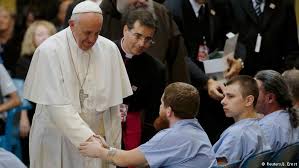
The Benefits of Hope
I’ve tried in the past to write about the virtue of Hope, but have never been satisfied with the result.
All the virtues may seem nebulous, but none as much as hope. As I’ve seen the word used, it seems to simply be a poor substitute for faith. I recall a conversation with a friend, a former priest, who said he had lost his faith. He asked about mine, and unthinking, I answered that my faith was more like hope. I would answer the question in a different way now. I think I better understand the difference between the two. And no, despite doubt, I haven’t lost my faith.
I recently finished a book called “Finding Happiness” by Christopher Jamison, abbot of Worth Abbey in the United Kingdom.
He tells the story of a man who came to see him after a TV series aired about life in the monastery. The man was married and a psychiatrist with a successful career.
Overwhelmed by Emotions
“But as he was approaching retirement he felt overwhelmed by emotions that he did not understand,” writes Jamison. “Watching the TV series, he said, had brought him a glimmer of hope and that was why he wanted to speak to me. The man’s depression was “palpable, but there was more to it than that. He said he didn’t want to see a psychiatrist because he thought he knew exactly what they would do and say…” But he had no idea what he needed or wanted.
“He agreed to see his general practitioner for anti-depressant medication to provide a window through which we could explore matters further.” He wasn’t suicidal and there were no family crises, but family life seemed empty and he went to church only occasionally. His life seemed pointless and the future bleak.
“Yet coming to Worth to sit in the abbey church and talking to me brought him great solace,” writes Jamison. “We came to realize that beyond the depression there lay the wider issue of hope: he lacked the virtue of hope and the only place where he found it again was in the physical setting of our church.”
A Visceral Experience
What was needed, said the abbot, was “not so much finding religion but rather finding a visceral experience of hope.” Unfortunately, the abbot doesn’t say precisely what hope is and how it differs from faith. But he writes that the man made two retreats at the abbey and “from hope started to flow a renewed sense of love, love of family and love of life itself,” and that “hope has proved to be the existential foundation of faith and love.”
Traditionally, hope, along with faith and love, are categorized as the three “theological virtues” because they relate directly to God. Specifically, hope is the desire for something, together with the expectation of obtaining it. Faith is belief in something that can’t be explained scientifically. So, it seems, religious faith precedes hope, providing something to hope for.
Getting personal again, I’m keenly aware of the seemingly pervasive skepticism about life after death. But by faith, I believe there will be one, for me and for everybody – some kind of “life” that is entirely unpredictable. I don’t think about it all the time, but this hope gets me up in the morning and keeps me going throughout the day. It’s the hope that no matter what happens, I’ll be OK because, as the psalmist says, I “cling to (God) in love.” Most of the time, this hope brings peace, and even joy.
Rolled Back and Empty
Pope Francis put it much more eloquently in his homily at the Easter Vigil Mass this year, commenting on the gospel story about the women going to Jesus’ tomb to anoint his body with oil and finding the stone rolled back and the tomb empty.
“…Let us not … place a stone before hope. We can and must hope, because God is faithful.” Speaking of God’s becoming human in the person of Jesus, he continued, “He did not abandon us; he visited us and entered into our situations of pain, anguish and death. His light dispelled the darkness of the tomb. Today he wants that light to penetrate even to the darkest corners of our lives.
“…That hope should not be confined to our sacred places,” said Francis, “but should be brought to everyone. For everyone is in need of reassurance, and if we, who have touched ‘the Word of life’ do not give it, who will?”



